Cancer Cells-Feeder
· Remove the removal process of cancer cells
· potential risk of remaining cancer cells
· Unsuitable for Mass Production Process Rescue
Immunity is a system designed to protect the body from external substances or self-derived materials. It removes external substances, acquires adaptive immunity, and eliminates cancer cells and invading viruses to maintain a healthy body. However, if the immune system does not function properly, the body becomes vulnerable to attacks from both inside and outside, leading to illnesses ranging from the common cold to chronic infections or cancer. Imbalances in the immune system can also result in allergies or autoimmune diseases.
Immune cells include macrophages, NK cells involved in innate immunity, and T cells, B cells involved in adaptive immunity. Additionally, dendritic cells, gamma delta T cells are involved in all types of immunity.
Our company is focusing on developing NK cells among these immune cells. Instead of using traditional cancer antigen-based cultivation methods, we are researching and developing advanced cultivation methods using cell-derived additives such as cytokines for the mass cultivation process of NK cells. We are continuously striving to develop more effective immune cell therapies by integrating new technologies and processes with our existing technologies to eliminate evolving cancer cells.
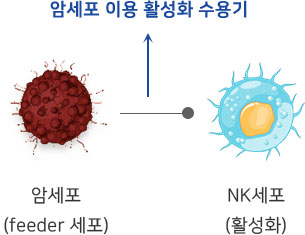
· Remove the removal process of cancer cells
· potential risk of remaining cancer cells
· Unsuitable for Mass Production Process Rescue


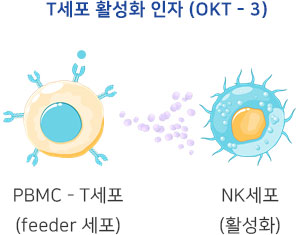
· Need a lot of blood, burden the patient
· T cell proliferation inhibition - radiation equipment required
· Follow-up observation of residual T cells is required


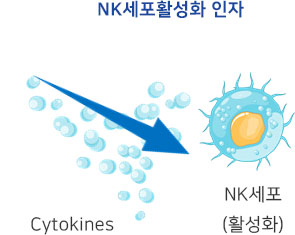
· Can be mass-produced with less blood
· Solving the problems of the prior art
· Requires optimal combination of cytokines

Difficult to remove microscopic residual cancer cells, leading to risk of recurrence or metastasis and potential organ damage



Destroys normal cells as well, causing severe pain and side effects



Targets only cancer cells without pain, uses the patient’s own cells to avoid side effects, and can eliminate residual or metastatic cancer cells
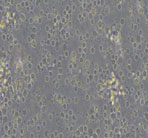
High magnification
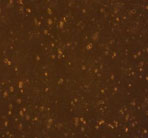
Low magnification
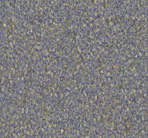
High magnification

Low magnification
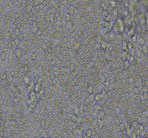
High magnification
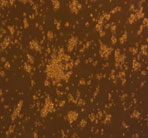
Low magnification

High magnification

Low magnification
immunotherapy
Our body's immune system plays a role in defending against antigens such as viruses and bacteria that invade from outside. Even in healthy individuals, an average of 4,000 to 5,000 cancer cells are newly formed each day. However, cancer does not develop because immune cells destroy these cancer cells on a daily basis. However, when immune cells fail to function properly due to congenital factors such as family history, cellular aging from increased age, and various acquired factors like harmful environments, stress, and fine dust, cancer and various diseases eventually occur.
Because it uses one's own cells, the side effects are minimal.
Activated immune cells selectively attack and destroy cancer cells.
A procedure method that does not involve pain
Removal of microscopically residual unidentified cancer
Reduction in cancer recurrence rate
Strengthening the immune system to prevent diseases